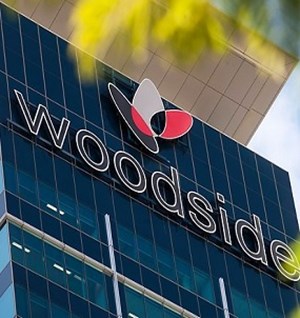Woodside, Santos in early merger talks to create LNG giant amidst oil, gas industry M&A wave
(Bloomberg) – Woodside Energy Group Ltd. is in preliminary talks with Santos Ltd. on a potential merger, opening the door for the creation of an Australian gas export powerhouse amid a global wave of multi-billion dollar oil and gas deals.
Talks are at an early stage, Santos said in a statement. Woodside separately confirmed the discussions. Representatives for both companies weren’t immediately available to comment further. The news follows an earlier report by the Australian Financial Review that said the companies were exploring a deal.
Woodside has a market capitalization of A$56.9 billion ($37.3 billion), while Santos’s market cap is A$22.2 billion. Both companies have seen their shares slide in recent months, falling at least 15% from an August peak.
A possible combination of Woodside and Santos comes amid a wave of merger activity as oil and gas producers figure out what to do with their profit windfalls from last year’s spike in energy prices. The talks follow Exxon Mobil Corp.’s roughly $60 billion bid for Pioneer Natural Resources Co. and Chevron Corp.’s $53 billion takeover of Hess Corp. Last week, Bloomberg News reported that Occidental Petroleum Corp. is in talks to buy shale driller CrownRock LP.
The Santos-Woodside discussions also illustrate the growing importance of liquefied natural gas (LNG) to the industry, as executives expect the fuel to be needed for decades in Asia as part of the energy transition. Woodside is already the top Australian exporter, and a merger would create one of the world’s biggest producers of the fuel while satisfying shareholder pressure for Santos to become a pure LNG business.
Woodside Chief Executive Officer Meg O’Neill has been aggressive in expanding the company’s role in LNG, betting it will be needed for decades in Asia as part of the energy transition. Woodside absorbed BHP Group’s oil and gas portfolio last year, and recently signed a deal to buy LNG from an export project in Mexico.
Santos has a stake in an LNG export project in Papua New Guinea and operates two facilities in Australia, and is developing the Barossa gas field off the coast of the Northern Territory.
Institutional shareholder L1 Capital in October called for a strategic review into splitting Santos’ assets “to unlock the inherent value.” It said the company has lagged its peers, partly because investors seeking exposure to LNG markets have chosen alternative stocks, leaving the Australian producer “under-appreciated.” Selling its oil and gas assets in Australia to become a pure-play LNG company would boost shares by about 40%, it said.



